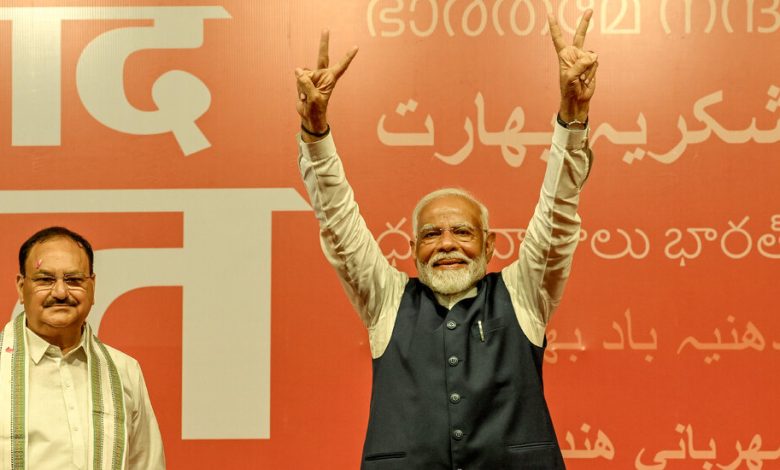In Global Elections, Strongmen Are Taken Down a Notch

In India, a powerful leader wins another term but sees his party’s majority vanish. In South Africa, the governing party is humbled by voters for the first time since the end of apartheid. In Britain, a populist insurgent barges into an election that is shaping up to be a crushing defeat for the long-ruling Conservatives.
If there is a common thread halfway through this global year of elections, it is a desire by voters to send a strong signal to the powers that be — if not quite a wholesale housecleaning, then a defiant shake-up of the status quo.
Even in Mexico, where Claudia Sheinbaum, a climate scientist and the handpicked successor of the president, Andrés Manuel López Obrador, was elected in a landslide last Sunday, voters were rewarding the forces that had uprooted the country’s entrenched establishment only six years earlier.
With a billion-plus people going to the polls in more than 60 countries, some analysts had feared that 2024 would pose a fateful test for democracy — one that it might fail. For years, populist and strongmen leaders have chipped away at democratic institutions, sowing doubts about the legitimacy of elections, while social media has swamped voters with disinformation and conspiracy theories.
In some of the biggest, most fragile democracies, leaders like Prime Minister Narendra Modi of India and President Recep Tayyip Erdogan of Turkey had been regarded as close to invincible, using appeals to nationalism or sectarianism to mobilize supporters and bending institutions to suit their purposes.
